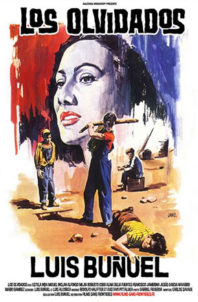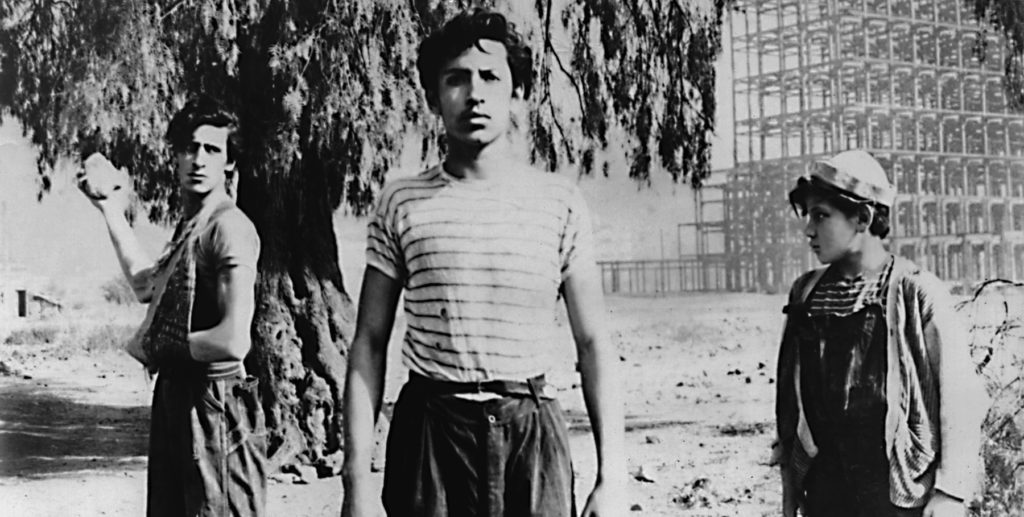
“Luis Buñuel does neo realism”. That’s a succinct, albeit a reductive way, to summarize Los Olvidados, which is a Spanish auteur’s Mexican masterpiece. Yes, he’s working within the confines of that a genre that both has its fans and detractors. Despite that, he still gets to insert his surrealist self. Surrealism, surprisingly, fits well in depicting a country with its own folkloric beliefs, it dreams and nightmares. There’s cautiousness in watching a movie like this now. Buñuel shares a language with Mexico but not a culture. But he portrays the latter respectfully and with nuance, as visiting artists should.
In making Los Olvidados, he puts contentious figures in its centre. One of them is Jaibo (Roberto Cobo), who takes advantage of everyone around him. That includes Don Carmelo (Miguel Inclan), a blind busker. Other characters revolve around them, including Pedro (Alfonso Mejia). At thirteen, he wants to get his life together but can’t because of a secret he and Jaibo share. It’s important to note that generations before Roma, Los Olvidados depicted mestizo or Indigenous characters. People whose families had to move to Mexico City for a better life. It shows these characters yearning for improvement despite their tendencies for self-sabotage.

Los Olvidados shows characters who have lived full but sad lives before they turn 12. And it does a lot of things right that contemporary movies about poor children and teenagers get wrong. It shows their interior lives and their guilt complexes. That they’re capable of hurting people as much as others hurt them. It also shows the society they live in. The parents of these young people who show their love in unique if not destructive ways. There are systems at play here, both official and otherwise, who seek justice for people that society forget. That sense of justice aims for fairness but it can have a brutal streak.
Los Olvidados is honest but it doesn’t have the tendencies that some neo realist films have. Sometimes those films stick to the characters family dynamics way too long. They therefore blame families for not properly raising their poor children. There’s a detour here when Pedro finds himself in a farm for juvenile delinquents. His mother Marta (Estela Inda) sends him there. She does so despite knowing that he hasn’t done anything to deserve being in that program. Running that farm is a principal, the nicest person in Pedro’s life. But even that man’s technique of spoiling children can backfire. There’s a balance here that Buñuel attains in depicting realistic characters.

